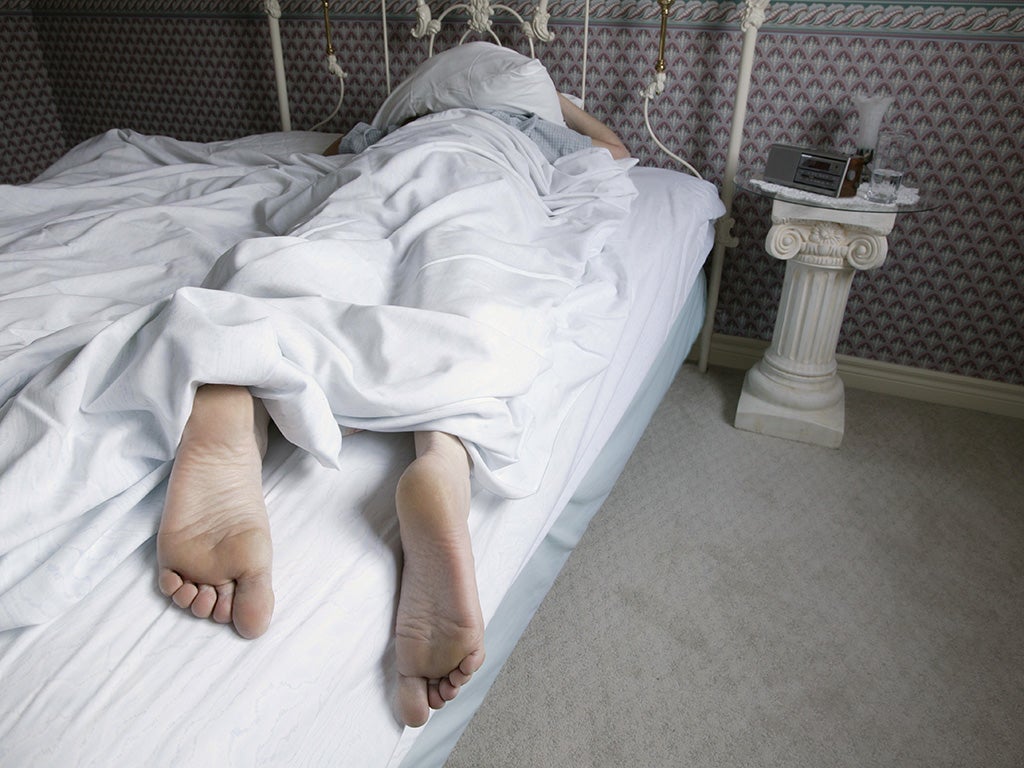The dangers of sleep deprivation
From impaired judgement to raised blood pressure, a lack of sleep can have severe effects on the body and mind

Your support helps us to tell the story
From reproductive rights to climate change to Big Tech, The Independent is on the ground when the story is developing. Whether it's investigating the financials of Elon Musk's pro-Trump PAC or producing our latest documentary, 'The A Word', which shines a light on the American women fighting for reproductive rights, we know how important it is to parse out the facts from the messaging.
At such a critical moment in US history, we need reporters on the ground. Your donation allows us to keep sending journalists to speak to both sides of the story.
The Independent is trusted by Americans across the entire political spectrum. And unlike many other quality news outlets, we choose not to lock Americans out of our reporting and analysis with paywalls. We believe quality journalism should be available to everyone, paid for by those who can afford it.
Your support makes all the difference.Most adults need between six and nine hours sleep per night in order to perform at their best. The amount of sleep a person needs depends on their genetics, enabling some individuals to function with less zzz’s while others need to hit the snooze alarm.
One of the major problems with sleep deprivation is decline in cognitive ability; our brains just don’t work properly without sleep. We struggle with memory, learning, planning and reasoning. A lack of sleep can have severe effects on our performance, ranging from irritability and low mood, through to an increased risk of heart disease and a higher incidence of road traffic accidents. Lack of sleep doesn’t just make you tired; it can have dangerous unseen effects.
Here are six common dangers of sleep deprivation:
Impaired judgement
Sleep deprivation impacts your visual working memory, making it difficult to tell the difference between relevant and irrelevant stimuli in your environment, and affects your emotional intelligence, behaviour and ability to manage stress.
Mood disorders
Mental health problems are linked to sleep disorders, and sleep deprivation can play havoc with neurotransmitters in the brain, mimicking the symptoms of depression, anxiety and mania.
Raised blood pressure
Poor sleep can raise blood pressure, and in the long term is associated with an increased risk of diseases such as coronary heart disease and stroke. This danger is increased in people with sleep apnoea.
Increased accidents
In the USA it is estimated that 100,000 road accidents each year are the result of driver fatigue, and over a third of drivers have admitted to falling asleep at the wheel.
Weight gain
Sleep deprivation affects the levels of hormones involved in regulating appetite. Levels of leptin (the hormone that tells you how much stored fat you have) drop, and levels of the hunger hormone ghrelin rise.
Hallucinations
Severe sleep deprivation can lead to hallucinations; seeing things that aren’t really there. In rare cases can lead to temporary psychosis or symptoms that resemble paranoid schizophrenia.
Jodie Tyley is editor of How It Works Magazine. The latest issue is out now: Issue 77 ‘The Power of Magnetism’
Join our commenting forum
Join thought-provoking conversations, follow other Independent readers and see their replies
Comments